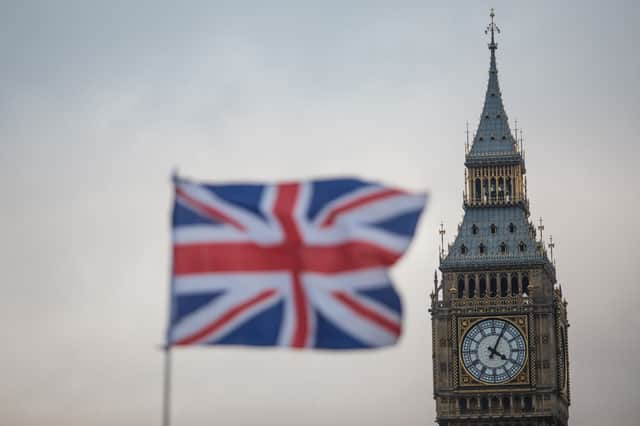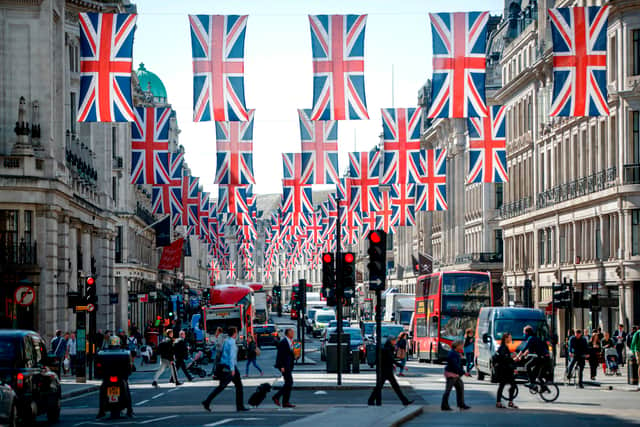Nicknames for Brits: From Limey to Pom - here’s what people from the UK are called around the world and why


For better or worse, the United Kingdom has had an impact on countries across the globe, earning the British various nicknames from many different nations, such as tommy, limey and pommy.
A nickname or a short name is a replacement for the proper name of a person, place or thing which is often used as a form of affection and amusement. Although in some cases it can also be used in a derogatory way, depending on the context of a particular situation.
Advertisement
Hide AdAdvertisement
Hide AdMany of the nicknames for British people are an example of this and they can give us an insight into the historical relationships between the UK and other countries around the world.
With that in mind we take a look at some of the most popular nicknames for British people and where they are derived from.
What are some of the most popular nicknames for the United Kingdom?


Brit - Worldwide
The term Brit is a commonly used slang term for a person from the UK, which is often used in North America, Republic of Ireland and many other countries.
Brit is a shortened term for Briton and Britisher which was formerly used in North America, although it has become outdated.
Limey - USA
Advertisement
Hide AdAdvertisement
Hide AdLimey is a nickname which is used to describe a British person.
Its roots come from the British navy’s use of lime juice to cure scurvy during the 19th century - earning them the nickname of Lime Juicers among American sailors who didn’t know or believe in the preventative treatment.
The word was later shortened to limeys as slang for a British sailor or warship.
The term had its heyday in the 20th century in America and was extended to mean any British person. The term was so common that it even featured in American newspaper headlines during the 1920s.
Pommy or Pom - Australia, New Zealand and South Africa
Advertisement
Hide AdAdvertisement
Hide AdThe terms pommy, pommie and pom have commonly been used to describe a British person in Australia, South Africa and New Zealand.
There are many theories behind the origins of the word and some claim it was used to describe a newly-arrived British immigrant during the 1800s.
The most widely accepted theory states that the word is an abbreviation of pomegranate and it is used to describe a fair skinned British person who burns easily in the sun.
Tans or Black and Tans - Republic of Ireland and Northern Ireland
The Black and Tans were constables recruited by Great Britain in the 1920s by David Llyold George during the Irish War of Independence.
Advertisement
Hide AdAdvertisement
Hide AdThe nickname arose from the improvised uniforms that the British typically wore which consisted of dark tunics and caps and khaki army trousers.
The term has negative connotations due to the violence that occurred during this period and by extension the UK is sometimes referred to as Tanland.
Guiri - Spain
The word Guiri became popular in Spain during the 1960s when tourism began to bring in thousands of travellers.
The term is often used to describe uncouth tourists, particularly from the United Kingdom and in some cases can be used as an insult.
Advertisement
Hide AdAdvertisement
Hide AdGuiri has also been used to describe tourists from other North European countries and in most cases it is seen as a lighthearted term of endearment for tourists.
Le Rosbif - France
The English have long joked about the French by referring to them as frogs and the French equivalent is calling English people Rosbif which translates as roast beef.
The word was not intended as an offence originally and was seen as a way of characterising traditional eating habits in the UK. But some linguistics suggest that the term has connotations to the heated disagreements between the UK and France over British beef.
Tommy - Worldwide
British soldiers were commonly known as Tommies during the First and Second World Wars and the slang word Tommy is occasionally used to describe modern day British soldiers.
Advertisement
Hide AdAdvertisement
Hide AdThe term is derived from a name Tommy Atkins which was seen as a conventional name for a British soldier when enlisting.
The first recorded use of Tommy for the British Forces appeared in 1743 in a letter which described the efforts of the British soldiers during a mutiny in Jamaica. It is also believed that the Duke of Wellington during the Flanders campaign in 1794, chose the name after being inspired by the bravery of a soldier named Private Tommy Atkins.
Oburoni - Ghana
Oburoni is a term used in Ghana to describe a white person or a foreigner and its meaning is “those who come from over the horizon.”
Mzungus - West Africa
Mzungus is a term used in West Africa which translates as wanderer. It is typically used to describe a tourist who is a white person.
Comforts - Lincolnshire
Advertisement
Hide AdAdvertisement
Hide AdComforts is an affectionate term used by people in Lincolnshire to describe tourists or visitors to the area.
The saying, which is typically pronounced in a northern accent goes “Come for t’day, stay for’t week.”
Grockles - Devon
The UK has many different slang terms for tourists and a popular one in Devon is Grockles.
The term grockle is often used as a derogatory codeword for locals to describe people from out of town who get in the way of their day-to-day lives.
Comment Guidelines
National World encourages reader discussion on our stories. User feedback, insights and back-and-forth exchanges add a rich layer of context to reporting. Please review our Community Guidelines before commenting.
